Yes, That’s What You Get For Being Such A Good Employer!
#18 PROVIDING A HOTEL ROOM
Employees are covered 100% of the time while on overnight business trips!
It is not unusual for companies to accept work assignments in other cities, requiring their employees to commute long distances. Depending on the location of the assignment it may be unreasonable to require employees to commute to/from work over a long distance. For the benefit of its employees, a good employer often puts its workers up in a hotel for a night or two. A problem with our compensation laws is that whenever a company puts its workers up at a hotel the employer becomes exposed to a whole gamut of potential liability. For the most part, any injury that happens to an employee while on this assignment now because work related. Should an employee get injured at the local bar at 1:00am, or be involved in a vehicle accident on his way to dinner, or injured in a strong-armed robbery on the street, it all becomes a compensable workers’ compensation claim.
#17 GIVING A PROMOTION
An employee experiencing stress due to responsibilities required by a new position can be eligible for a workers’ compensation claim!
How in the world could workers’ compensation law punish an employer for giving an employee a promotion? Believe it or not, it has actually occurred. This situation recently arose after an employee was promoted to a supervisory role. A month later the employee sought a leave of absence, medical care and workers’ compensation disability due to increased stress attributed to his new position as a supervisor. He emphasized how he was not ready for the promotion and not given appropriate training to cope with increased stress associated with the new position. In denying the workers’ compensation benefits the employer raised “Good Faith Personnel Action” as a defense, asserting that claims arising from non-discriminatory good faith personnel actions are barred from compensability. However, the Workers’ Compensation Appeals Board disagreed and commented that a good faith personnel action defense implies that the personnel action taken was negative or disciplinary in nature, such as a demotion, termination, suspension or wage reduction. Certainly giving someone a promotion cannot be viewed as a disciplinary measure. Therefore, the WCAB found a good faith personnel action defense was inapplicable with the employee being awarded full workers’ compensation benefits.
#16 INVITING SPOUSES TO EVENTS
Spouses of your employees who are required or expected to attend a business event may be covered under your workers’ compensation from the time they leave their home to the time they return… yikes!
At times company management is asked to entertain important clients, often out of town guests. Entertainment may include dinner, theatre or other forms of social gathering. When the client’s spouse also plans on attending the event those participating in behalf of the company may be instructed to bring their spouse along so as not to ostracize the guest. In one instance the spouse of a company manager was reluctant to accompany her husband to a late dinner with an important out of town client. The weather was inclement with a storm brewing. However, she was pressured into attending so as not to ostracize the guest spouse. While en route to dinner they were involved in a terrible car accident, severely injuring the company manager’s wife. Even though she was not an employee the spouse was awarded workers’ compensation benefits since her participation in that evening’s social event was expected by her husband’s employer. She was deemed to have been an employee for that night only. The lesson to be learned here is to be careful in what is said when spouses are encouraged to participate in company events.
#15 PROVIDING EMPLOYEE PARKING
Injuries occurring before and after work in the company parking lot are compensable!
Most companies provide a parking lot where employees can leave their vehicle during work hours. Injuries occurring in a parking lot are usually compensable regardless if the time-clock has been punched. In situations involving a metropolis, such as downtown Los Angeles or San Francisco, employers may subsidize employee parking fees at an off-premises structure. Any injury occurring in a subsidized parking structure is compensable, as is any injury occurring while walking to/from that structure to the office.
#14 OFFERING HEALTH INSURANCE
An employees are allowed to pre-designate a work comp treating physician and escape your MPN if they have health insurance you provided.
As strange as it may seem workers’ compensation law actually punishes employers for offering health insurance. Being enrolled in a health insurance program allows employees to escape the employer’s Medical Provider Network (MPN) by pre-selecting a primary care physician. A requirement of pre-selection is that the employee must have health insurance on the date of injury. By enrolling in a company sponsored health insurance plan an employee is allowed to escape the MPN by pre-selection. Studies have shown that escape from an MPN often results in increased claim costs associated with extended disability and disability time off work, along with additional medical expenditures.
#13 PROVIDING ADVANCED NOTICE OF LAYOFFS
Notice of pending layoffs given more than 60 days in advance results in a loss of a post termination defense in a work comp claim.
If you were going to lose your job, how much advanced notice would you like to receive … 1 month? 3 months? 1 year? Obviously, the more notice the better. Good employers are encouraged to give as much advanced notice as possible of impending layoffs, plant closure and staff reductions. However, workers’ compensation law punishes employers who give more than 60-days advanced notice by eliminating a key defense used to combat workers’ compensation fraud, namely, the post-termination defense rule. Under LC 3208.3(g) an employer who gives more than 60-days advanced notice of a layoff or termination loses the right to assert a post-termination defense. Such a defense is usually raised when laid off or terminated employees suddenly remember they were previously injured but forgot to report it. The lesson to be learned here is that workers’ compensation law encourages employers to give as little advanced layoff notice as possible in order to protect their rights to raise a defense they may need against future industrial claims.
#12. OFFERING WELLNESS PROGRAMS
On-site gyms and basketball courts can result in a compensable claim.
Companies often offer a variety of wellness programs for the benefit of its employees. It is a given fact that healthy employees do not miss as much time from work as those with unhealthy lifestyles. Consequently, some employers have constructed an on-site gym or perhaps a basketball hoop in the parking lot for the benefit of its employees. The problem with such wellness programs is that should an employee be injured while using the wellness facility the employer may be held liable to provide workers’ compensation benefits, even if the injury occurred during off-hours. Because the injury occurred on company property wherein participation was encouraged, the Appeals Board in certain situations has found injuries arising therefrom to be compensable, resulting in the employer being punished for looking out for the well-being of its employees.


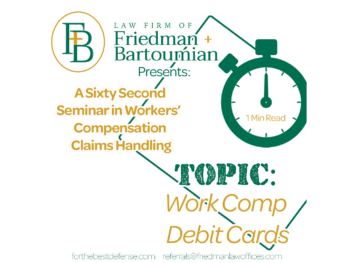
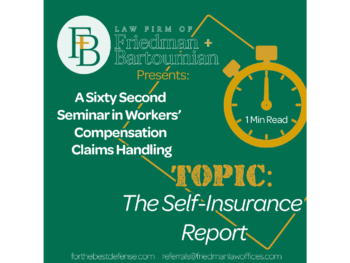
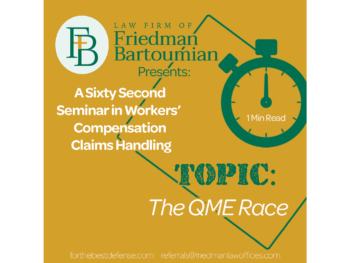
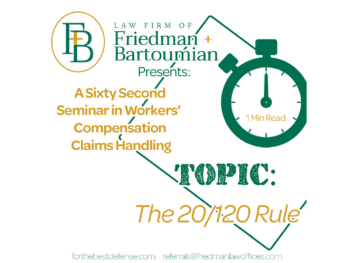

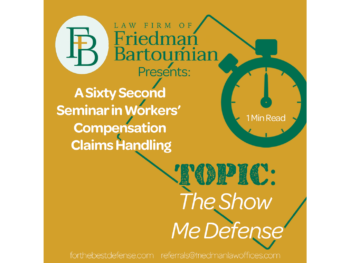
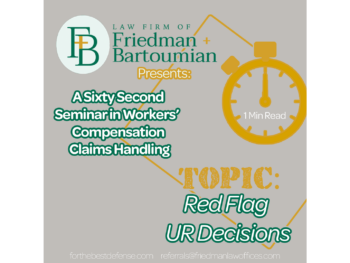
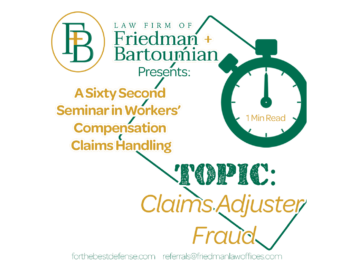

Leave a Reply